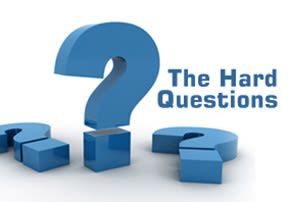
The Hard Questions
She tried to find the ‘hole’ in the Breslev teachings and hashkafa; the situation where it just didn’t work; the argument that really didn’t stand up...

I am two thirds of the way through Rav Shalom Arush’s book The Garden of Gratitude, and I am loving it. Literally every chapter is chock full of profoundly life-changing ideas, and the light bulbs are going off in my soul every few minutes.
I used to read a lot of Jewish literature looking for ‘answers’ to the millions of questions I had about life. I read ‘hard books’ by Rav Soloveitchik; I read the Ben Ish Chai; I read works from the last Lubavitcher Rebbe. I read books about ‘why bad things happen to good people’; I read books trying to explain how G-d was ordering the world, and what was really going on down here.
I used to go on to ‘simpletoremember.com’ and go through shiur after shiur from famous Jewish lecturers like Shira Smiles, Rabbi Tatz, and quite a few others.
But even with the books and lectures that I really loved, the books and teachings that I enjoyed the most, I always but always came away with new questions.
They would answer the more simple, basic questions, but their answers always seemed to pose deeper, more difficult questions that I found very hard to resolve.
For a long time, I ‘solved’ the problem by understanding that just because I didn’t understand it, that didn’t mean that they didn’t. Just I wasn’t really ‘on the level’ to grasp it yet.
But then, I started to read books like the Garden of Emuna, and I started to listen to Rabbi Lazer Brody’s shiurim in English, and one after another, all my questions got answered. That’s not to say I always liked the answers; often, especially at the beginning, I really railed against the idea that I didn’t deserve to have unlimited income, as many kids as I wanted and lots of holidays in five star hotels.
It was excruciatingly difficult to accept that I was not the master of my own destiny, and that my idea of how I should run my life was not the final word on the matter.
But even though I spent a good two years of my life really fighting Hashem, and fighting to hold on to my mistaken ideas of ‘independence’ and ‘personal effort’ and ‘success’ and ‘achievement’; underneath it all, my soul just knew that the answers I was getting from Breslev, via Rabbi Brody, Rav Arush, and Rebbe Nachman, were ‘true’.
Everyone has their thing that they are good at. My thing is getting down to the nub, or the core of a subject, to see ‘what, fundamentally, is it really saying?’
At the beginning, I tried and tried to find the ‘hole’ in the Breslev teachings and hashkafa (Jewish outlook); the situation where it just didn’t work; the argument that really didn’t stand up to constant and continual scrutiny. And I couldn’t.
And when I couldn’t, I started to understand that this stuff is coming directly from Hashem. This stuff, as brought down to us in 2011 by Rav Arush, is ‘truth’. It works for everyone, everywhere, in every situation.
You don’t need a rabbinical degree to understand it; you don’t need a distinguished Jewish pedigree, or even much of an acquaintance with orthodox Judaism. All you need is a thirst for ‘truth’ and the honesty to follow it where it takes you.
 What are some of the biggest questions that a modern-day Jew has, even if nothing ‘terrible’ is going on in their own life, G-d forbid? Most of us have a big question called ‘The Holocaust’. Most of us, at some point in our lives, think about all the millions of Jews that died in World War II, in the most appalling circumstances, and some faint doubt sparks in our hearts about G-d.
What are some of the biggest questions that a modern-day Jew has, even if nothing ‘terrible’ is going on in their own life, G-d forbid? Most of us have a big question called ‘The Holocaust’. Most of us, at some point in our lives, think about all the millions of Jews that died in World War II, in the most appalling circumstances, and some faint doubt sparks in our hearts about G-d.
We wonder, ‘can G-d be only and always good, and a holocaust still happen?’ Others go a step further, and say: ‘G-d let the forces of evil take over. He didn’t do anything to protect the Jews.’ Still others point to the holocaust – or the Russian pogroms, or the Spanish Inquisition, or any of a million other examples of severe Jewish suffering – and say: ‘How can G-d exist, if there is so much suffering in the world?’
These are hard questions, tough questions, fundamental questions. And Breslev answers them with real, solid answers that reassure a person that a) nothing happens in the world without G-d doing it b) everything that happens is good, even if we don’t yet understand why and c) G-d really, really cares about us, and is doing everything for our best.
Of course, this answer doesn’t come easily. Rav Arush explains again and again that if a person isn’t trying to do an hour of hitbodedut a day, they will never be able to see why something like the holocaust could possibly be ‘good’.
The real answers only come once a person has established a real connection with Hashem. Without that connection, without that tangible relationship to the Creator, even if you hear the answer, you won’t be able to understand it, and you certainly won’t be able to internalize it.
Other questions abound: why do so many people today, including young children, suffer from terrible, potentially terminal diseases? Why are so many people so miserable? Why is it that the same people who live in unheard of luxury – with running hot water, designer kitchens with all mod cons, three and four cars, wardrobes stuffed full of clothes, expensive white teeth, expensive hair, expensive nails, all-you-can-eat glatt kosher buffet bars – why are those people so incredibly unhappy? Why did I lose my job? Why is my sibling sick? Why are my kids going off the derech? Why wasn’t I born ‘frum’? Why can’t I manage to make aliya? Why can’t I make ends meet…. The list goes on and on.
But Rebbe Nachman has a real answer to them all.
And as I said, you don’t need a degree in applied Jewish philosophy to understand it all – in fact, the opposite is true. The answers supplied by Breslev chassidut are usually incredibly simple: G-d is good. G-d is always good. Everything comes from good, and is for our own good.
On my search for ‘answers’, I realized that some questions are helpful, and some questions are not. Questions about Hashem’s goodness, kindness and justice are not just ‘not helpful’; they bring even more harsh judgements down on a person’s head.
But questions like: ‘What is the purpose of my life?’ ‘What am I here in the world to do?’ ‘What does G-d want from me?’ – are great. Questions like: ‘How can I be a better person, a better Jew?’ How can I stop losing my temper?’ How can I start to appreciate all the tremendous blessings that Hashem gives me every single day?’ – these are good questions.
The Chofetz Chaim, who used to debate with a lot of ‘enlightened’ Jewish intellectuals who were stuffed full with phony ‘clever’ questions is quoted as saying the following: ‘For a believer, there are really no questions. For a non-believer, there are never any answers.’
And when all is said and done, that really is the answer to every single question we have.


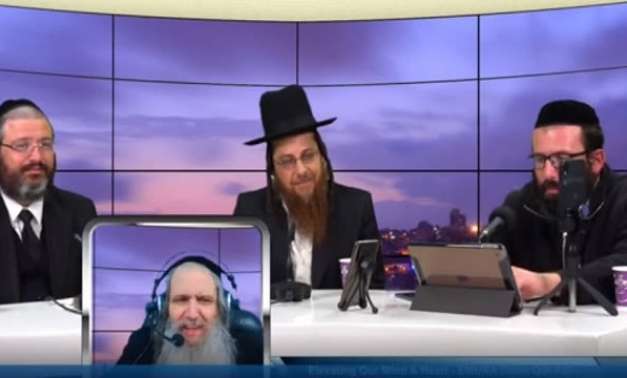
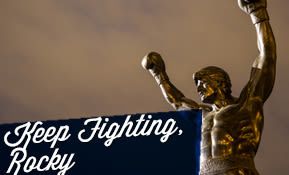




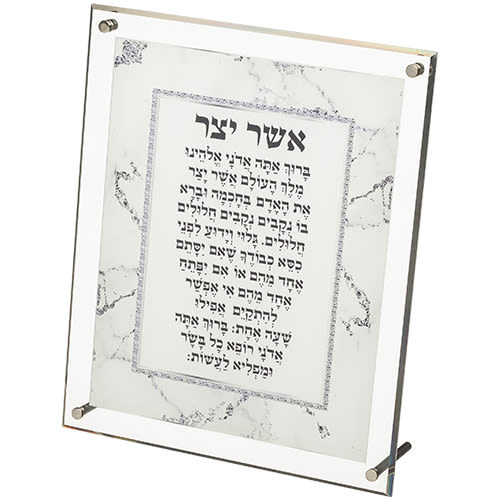
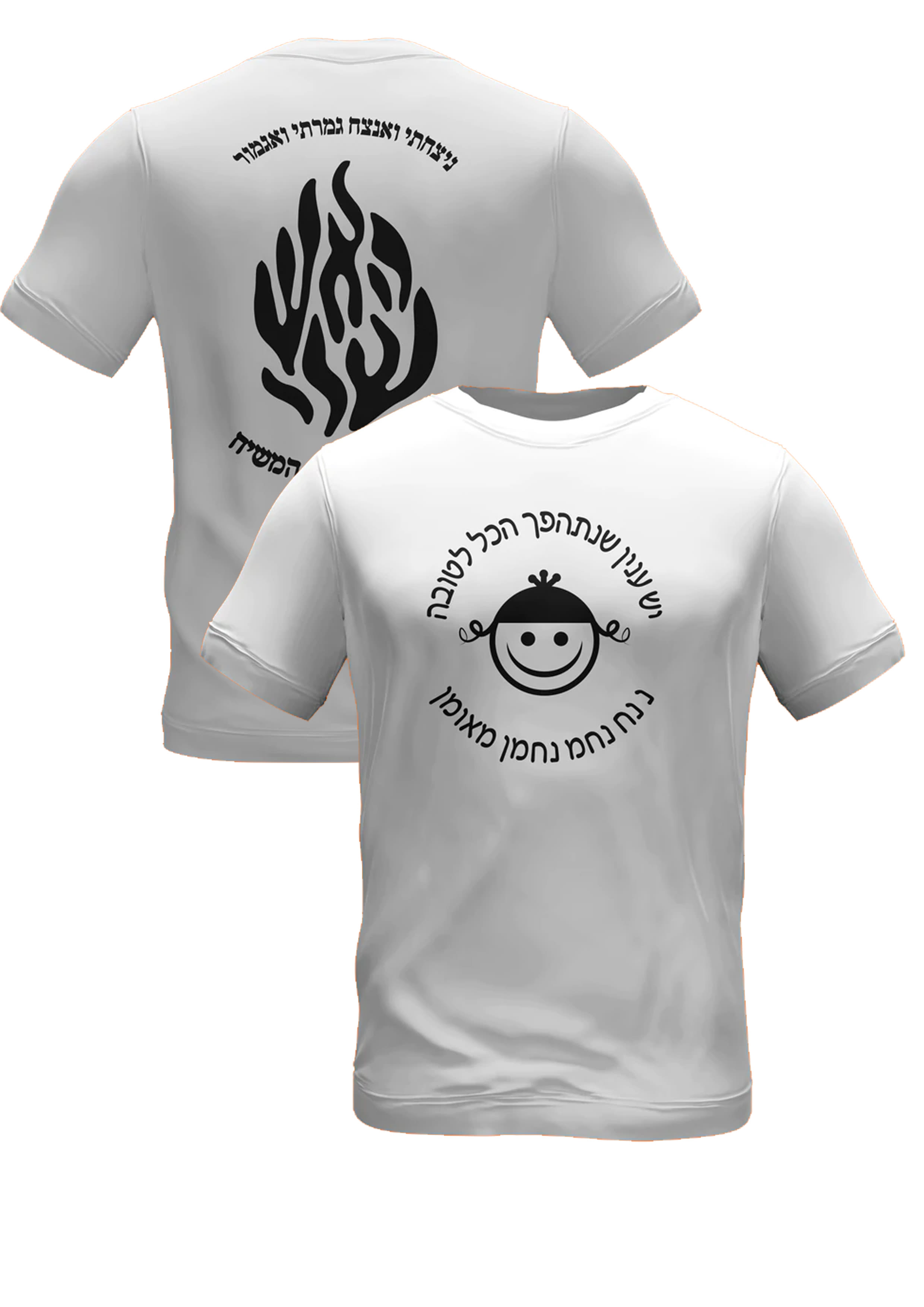
10/01/2014
great article Thanks Rivka for this article. I am finding more and more as my connection to Breslov deepens that there are no questions. Rabbi Nachman, usually through Rabbi Natan in Likutei Halachot provides insights of such depth and practicality at the same time that make Jewish life so beautiful and meaningful. I have truly discovered a path which is joyful and that is a real priviledge. It's so positive, incredible. I was never satisfied with the litvish approach and with serving Hashem out of fear. Rabbi Nachman motivates you without you even knowing what's happening! For anyone reading this my advice is learn as much as you can about Rabbi Nachman and his teachings, try to understand them but the most important thing is that when you put them into practice, that's when you see how powerful they are. Especially hitbodedut/personal prayer.
10/01/2014
Thanks Rivka for this article. I am finding more and more as my connection to Breslov deepens that there are no questions. Rabbi Nachman, usually through Rabbi Natan in Likutei Halachot provides insights of such depth and practicality at the same time that make Jewish life so beautiful and meaningful. I have truly discovered a path which is joyful and that is a real priviledge. It's so positive, incredible. I was never satisfied with the litvish approach and with serving Hashem out of fear. Rabbi Nachman motivates you without you even knowing what's happening! For anyone reading this my advice is learn as much as you can about Rabbi Nachman and his teachings, try to understand them but the most important thing is that when you put them into practice, that's when you see how powerful they are. Especially hitbodedut/personal prayer.
3/02/2011
addition to comment: maybe i’m wrong: could be a great opening here i wrote to impassioned comments re this piece. maybe i am wrong. there could be a great opening here in seeing from a much higher, heavenly perspective what we may perceive as tragedy in this world. i don't think that the author was counseling us to tell suffering people "it's good!'…so forgive my implied criticism. the author was instead encouraging us to take a deeper, different look esp. per rav arush's ideas. you are welcome to delete my previous comments, unless, together with this, they would only be helpful and in no way harmful.